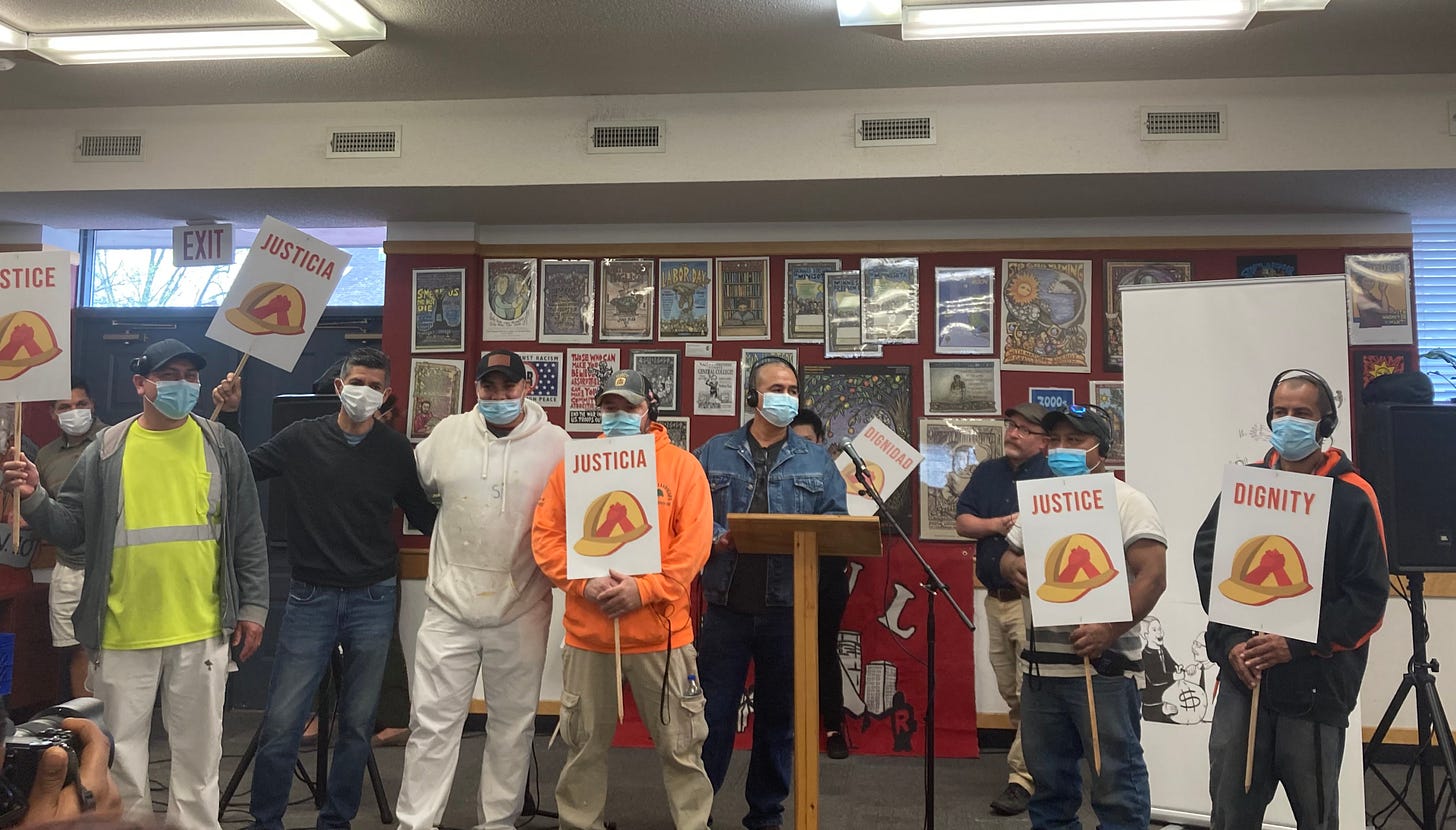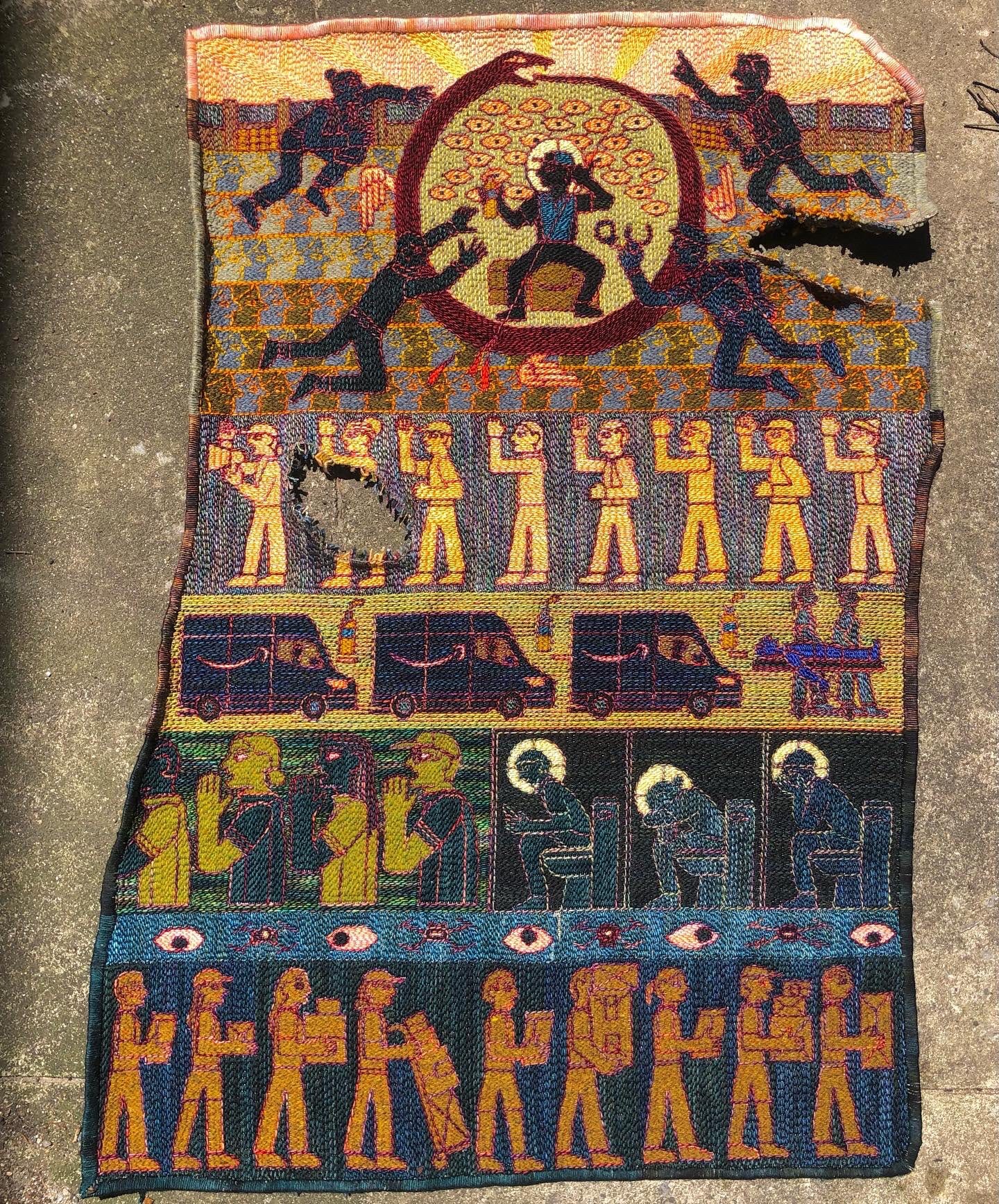How do we end wage theft?
A new program empowering workers in the Twin Cities is trying to hold the construction industry accountable.
🛠️ Worker-led program seeks to end wage theft and other labor violations in MN’s construction industry
“I want to make a clear message so that developers, when you’re going to sleep at night, you understand what’s happening to us. I want you to remember the contractors you hired that didn’t pay the workers…when are you going to pay the workers? We are the ones that work every day…we are the ones that are sweating.” –Pedro Carbajal, CTUL member and construction worker, in Spanish through a translator
Read the story here.
Working people in the US are often left out of the mythical comforts of the American dream, unable to lift themselves out of poverty because of wage inequality, discrimination, predatory lending, and greedy employers. But exploitative business practices like wage theft don’t make headlines as often as crime alerts masquerading as public safety information placing blame on people just trying to survive. Instead of addressing our colossal wage inequality, we neglect people’s basic needs and turn around to brand them as criminals for stealing medication and baby formula. Meanwhile, corporations are increasing prices to profit off of inflation at the expense of consumers–consumers that are also workers who aren’t receiving wages that are keeping up with living costs and productivity. Wage theft is a kind of violence, too, and it often goes unreported in the workplace and in the media, even though it has a public cost.
What does wage theft look like? Employers who are participating in wage theft:
pay below minimum wage
misclassify workers as “contractors” so they don’t have to follow federal and state labor standards
reduce hours from workers’ paychecks without explanation
subject workers to excessive workloads that require them to work unpaid during breaks or after hours
fail to track or pay overtime
confiscate tips
fire workers and withhold final paychecks
refuse to pay workers after work is finished
Have you experienced wage theft? What do you think needs to be done? Do you know of any similar worker-led programs like the Building Dignity and Respect program?
💰 MN frontline worker payments application process expected to start mid-June
Sign up for updates here. A recent update said that the Department of Labor and Industry has signed a contract with a vendor that will build the application, which they said they’re hoping to have ready by mid-June, with payments ready to go out late summer or early fall.
🍖 Time to reread The Jungle by Upton Sinclair…
A congressional investigation found that Trump officials worked with meatpacking companies to fight against regulations and oversight during the pandemic, using fear about a nonexistent “meat shortage” to keep workers on the job, reports Nina Lakhani for the Guardian.
“Meatpacking executives were aware of the high risks of coronavirus transmission inside of plants. For example, a JBS executive received an April 2020 email from a doctor in a hospital near JBS’ Cactus, Texas facility saying “100% of all COVID-19 patients we have in the hospital are either direct employees or family member[s] of your employees,” and warning that “your employees will get sick and may die if this factory continues to be open.”
⌛ “Time Off Task” is an enchanting piece on class struggle
Textile artist Tabitha Arnold created this work inspired by the Amazon Labor Union. Arnold said the piece is about workers fighting against one oligarch, but it can also connect with anyone struggling with their relationship to capital.
🔎 Are you looking for a job?
The East Side Freedom Library is hosting their annual union job and resource fair Thursday, May 19. Learn more here.
🚨 Labor skills class rescheduled
Know Your Rights at Work training with the Labor Education Service has been rescheduled to Tuesday, June 14, 9am-12pm.
Learn more and register here.
We’ll fight the big gigantic lies together. We are each other’s harvest.







